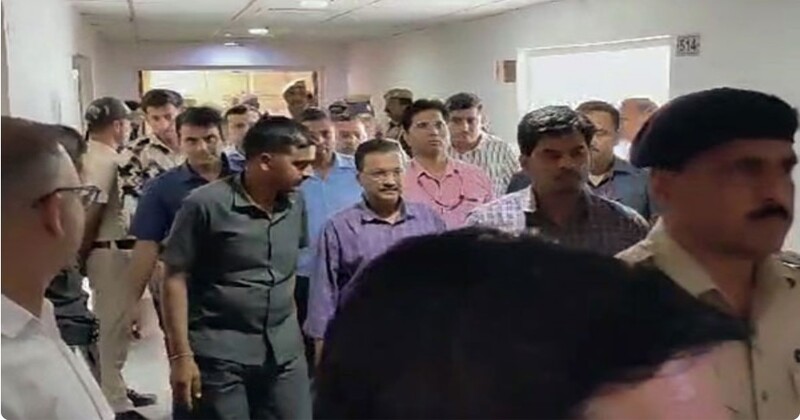
The Rouse Avenue Court has ordered Delhi Chief Minister Arvind Kejriwal to be held in ED custody until March 28th, following a request from the agency for a 10-day remand. Kejriwal was arrested by the Directorate of Enforcement (ED) on Thursday regarding the alleged Delhi Liquor scam case and was presented before Special Judge Kaveri Baweja’s court.
During the court proceedings, ED alleged that Kejriwal played a central role in soliciting kickbacks from businessmen and was directly involved in formulating the Excise policy. They claimed that Vijay Nair, an AAP media in charge, acted as a middleman between Kejriwal and certain groups. The ED further asserted that illegal funds, including those from bribes, were funneled through Hawala transactions during the Goa Election.
ASG SV Raju argued that AAP, as a company, is a beneficiary, making Kejriwal, as the national convenor, liable for its actions. Additionally, the counsel claimed that Kejriwal was uncooperative during the investigation.
On behalf of Kejriwal, Senior Advocate Abhishek Manu Singhvi opposed the remand plea, highlighting the lack of necessity for the arrest and emphasizing the absence of direct evidence against Kejriwal. Singhvi contended that Kejriwal’s arrest was arbitrary and illegal, urging the court to consider the larger democratic implications.
Senior Advocate Vikram Chaudhari, representing Kejriwal, expressed concern about the administration of justice, particularly noting the swift arrest following the High Court’s refusal of interim protection.
Kejriwal, arrested by the ED in connection with the excise policy case, asserted his dedication to the country, whether inside or outside prison, as he entered the court complex under tight security.
The excise policy case revolves around alleged irregularities and money laundering in the framing and implementation of the Delhi excise policy in 2022, which was subsequently annulled.



